
Baldur’s Gate 3 grants players access to the immensely powerful Illithid Powers, but doesn’t make immediately clear whether they have any long-term consequences. These abilities are revealed and improved upon throughout the game. Some Illithid Powers are equivalent to other in-game spells or abilities, like Charm or Horrific Visage, but can be cast without a magical ability or expending a spell slot. Others, like Inkblot or Aberrant Shape, are unique, reflecting their sinister and otherworldly origin.
In case the story doesn’t make it clear, Illithid Powers come from a parasitic tadpole implanted in the player character’s mind. They become infected during the introductory sequence, and it doesn’t take long for the protagonist’s primary goal to be curing themselves and their party members, a task which takes up nearly the entire playthrough of Baldur’s Gate 3. The conflict, however, comes from the growing influence of the tadpoles and the mysterious Guardian’s promises of great power. Some wariness is warranted here; the tadpoles may be useful, but they also come from a potentially malevolent source.
Yes, There Are Consequences For Using Illithid Powers In BG3
In The Search For More Power, Some Of Your Party May Grow To Resent You




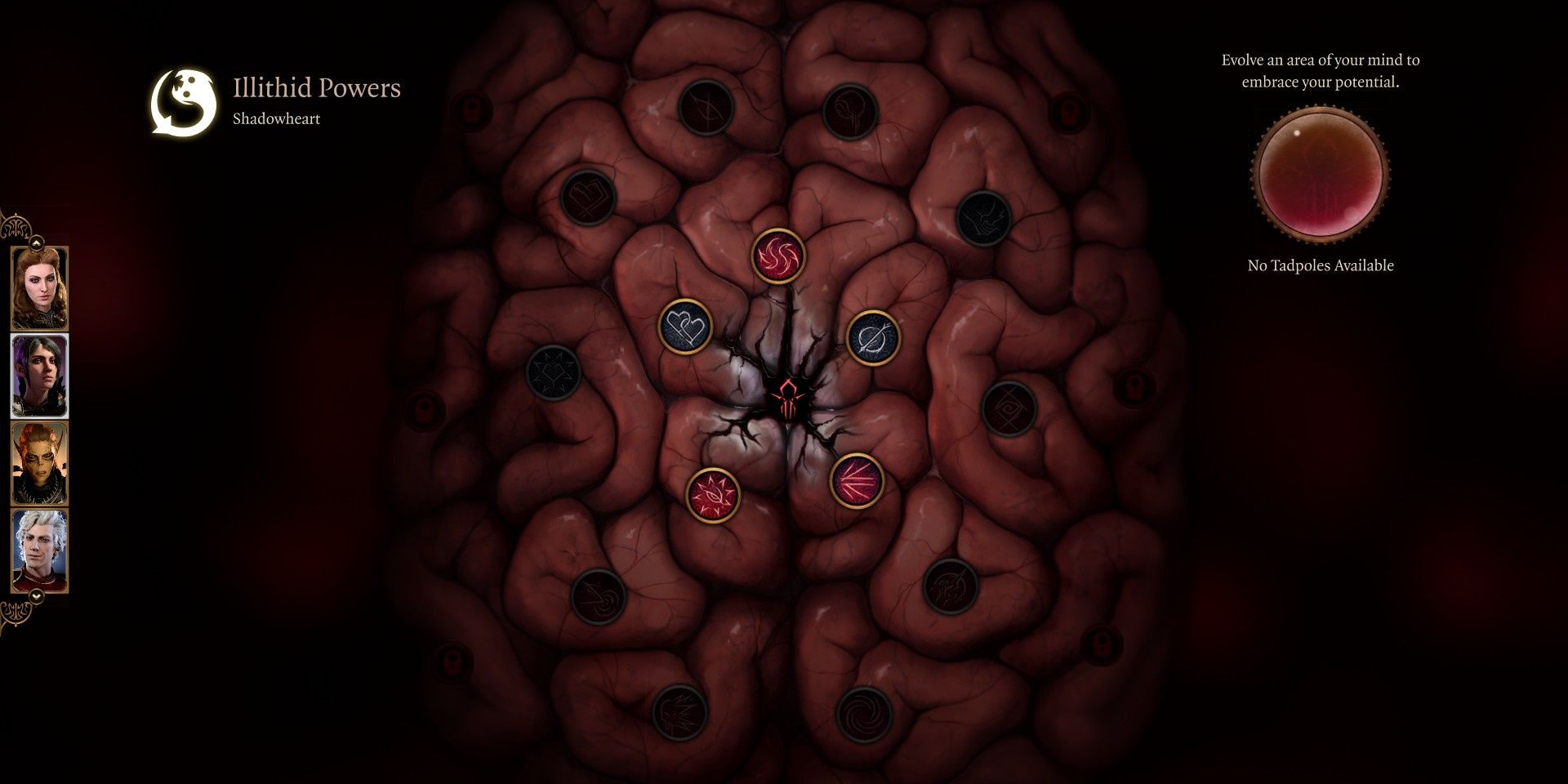
Unfortunately, yet predictably, using Illithid Powers comes at a cost in Baldur’s Gate 3. The most immediately apparent consequence is that certain party members disapprove when the player character uses these mysterious abilities. While not everyone will be as adamant about their outright hatred, one companion in particular will not be afraid to share her disdain for the powers, even if it’s only you that uses them to help the party.
She’s a githyanki, which means she comes from a culture that values physical strength and resents mind flayers. She’ll become disgusted if you repeatedly rely on Illithid Powers to help yourself or the group, which could lead to you being locked out of certain encounters in the long run. Considering that Lae’zel is easily one of the best companions in Baldur’s Gate 3, it’s worth at least modulating the use of Illithid Powers to maintain enough of her approval.
In addition to creating a bit of an awkward situation with some of your party members, overusing Illithid Powers can lock you into one of the bad endings of Baldur’s Gate 3. While this isn’t the wrong choice, per se, as the game emphasizes player freedom and plot flexibility, and so an unfortunate ending may be the best way to complete the story you have in mind, that won’t be the case for everyone.
Regardless of what ending you’re hoping for, it’s still recommended that you play through Baldur’s Gate 3 for the first time by selecting the choices that you want without knowing their direct effect, so you get your natural ending and avoid spoiling anything. Once you do that, you can begin another playthrough to achieve a specific ending and do anything you missed.
Which Companions Approve Of Illithid Powers?
The Use Of Illithid Powers May Improve Your Relationship With Some Companions
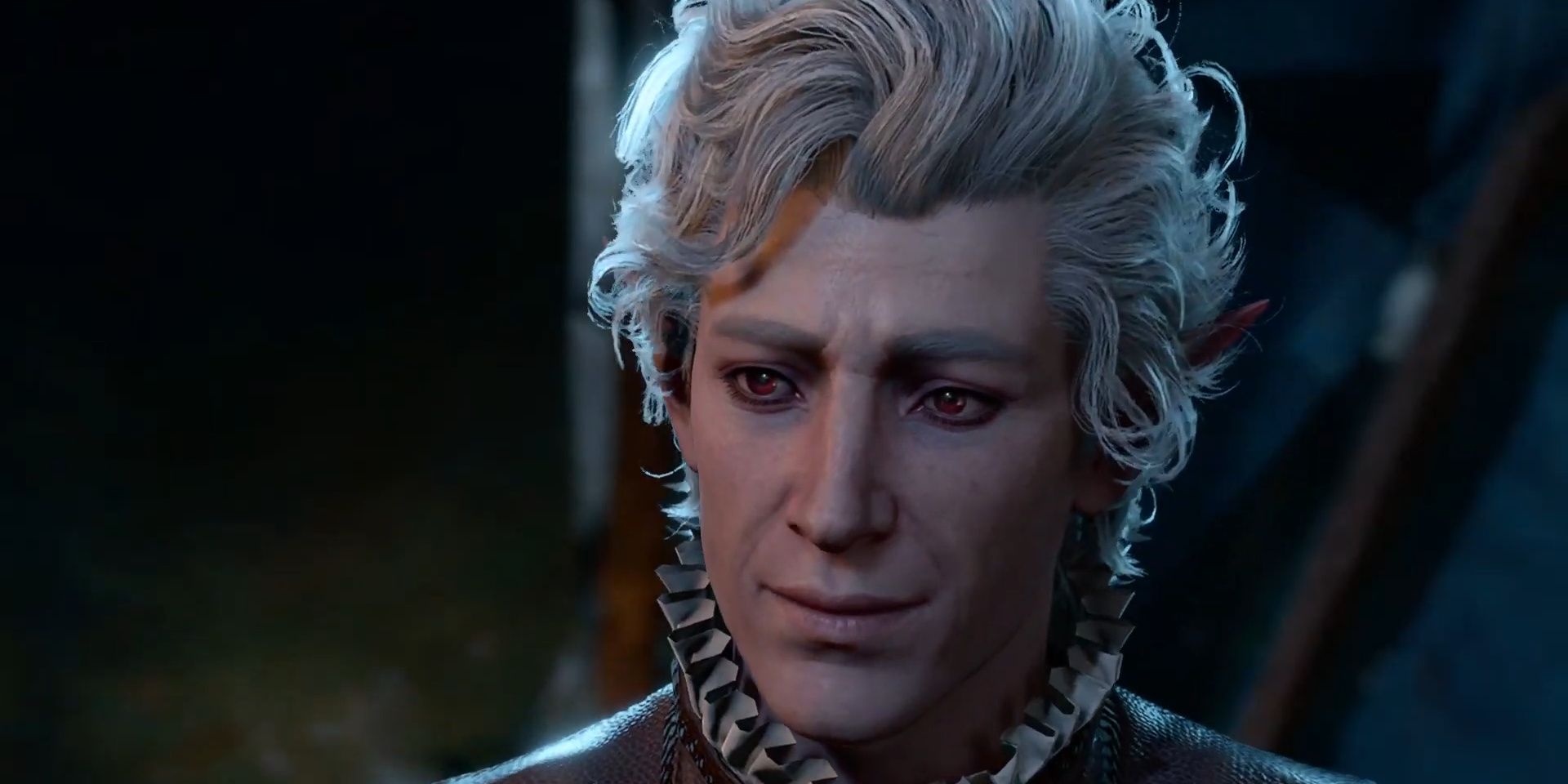



Unlike Lae’zel, not all party members feel so negatively about the potential for new powers. There are other party members – namely, Gale and Astarion – who approve of the player character’s liberal use of Illithid Powers. Astarion is obsessed with gaining more power and already has a somewhat vague concept of morals, so he’s more than happy to welcome the use of illithid powers.
Gale, on the other hand, while not necessarily interested in the potential for more power, is interested in magical research, including the use of Illithid powers. Plus, he’s accepting of the idea that the party needs to use every advantage at their disposal. Therefore, Illithid Powers can help develop certain relationships with NPCs. That being said, however, most of your party falls into a more gray area.
How To Use Illithid Powers In Baldur’s Gate 3
Accept This Unique Power To Give You An Edge In Most Fights
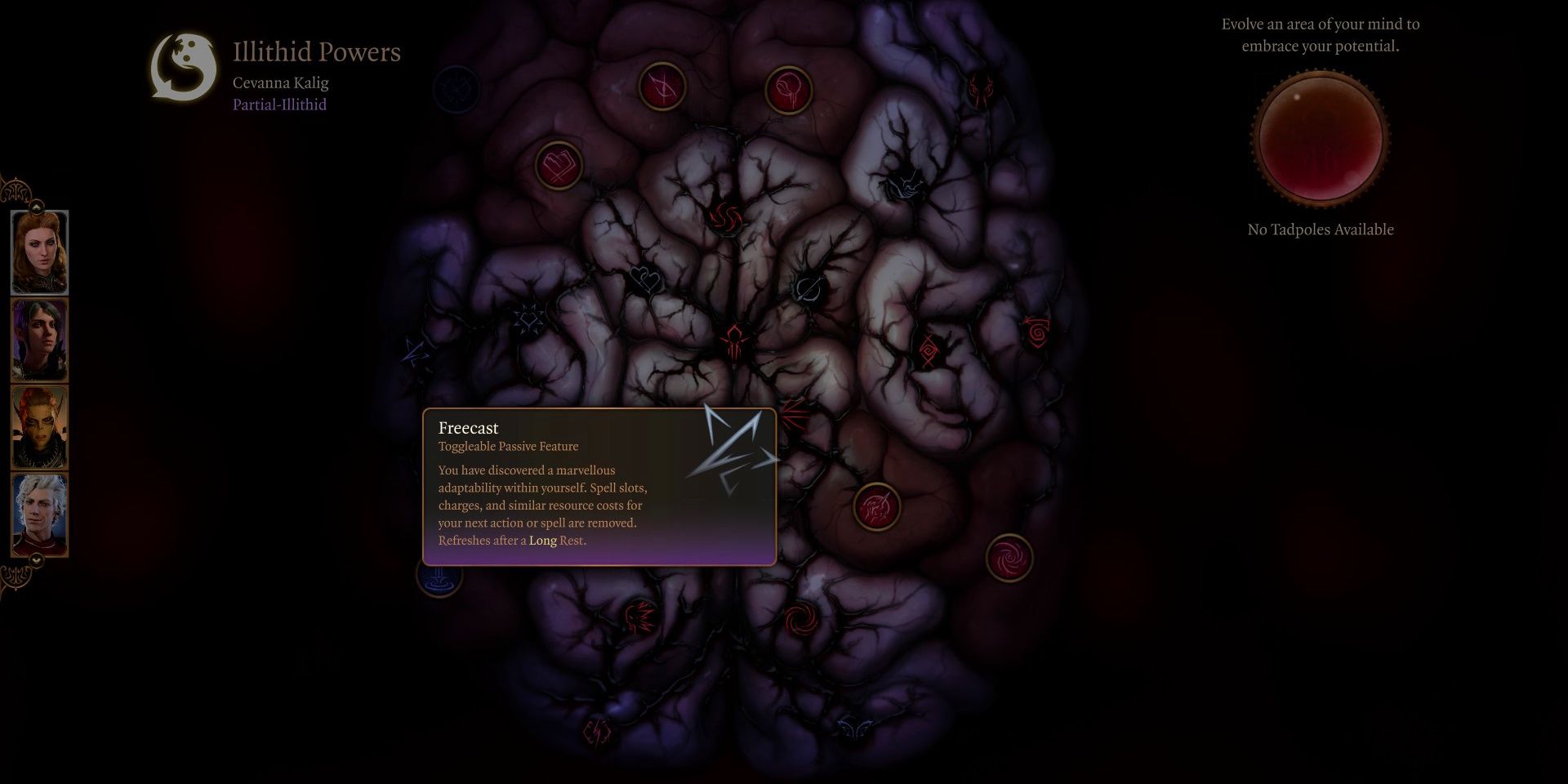
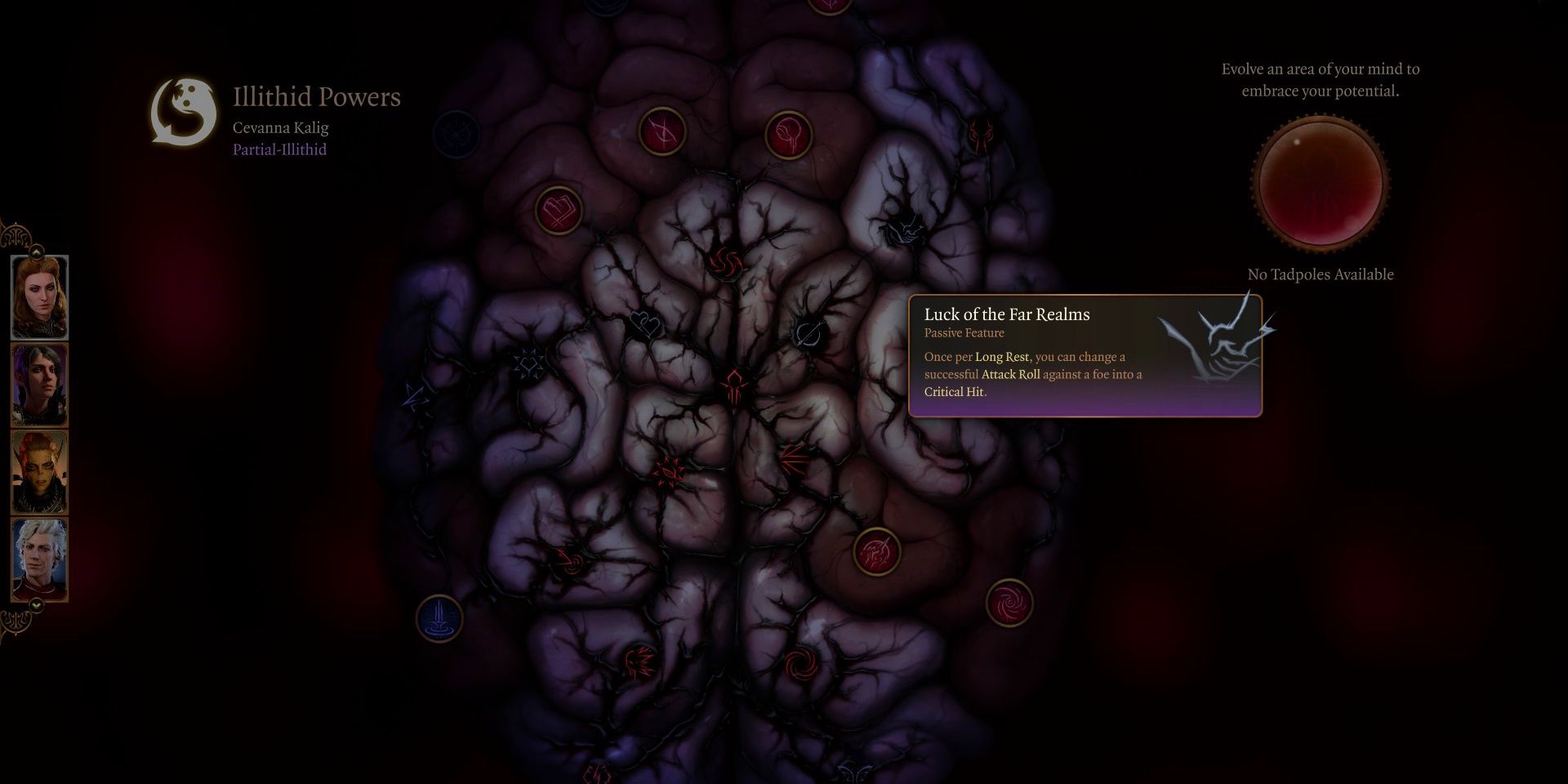
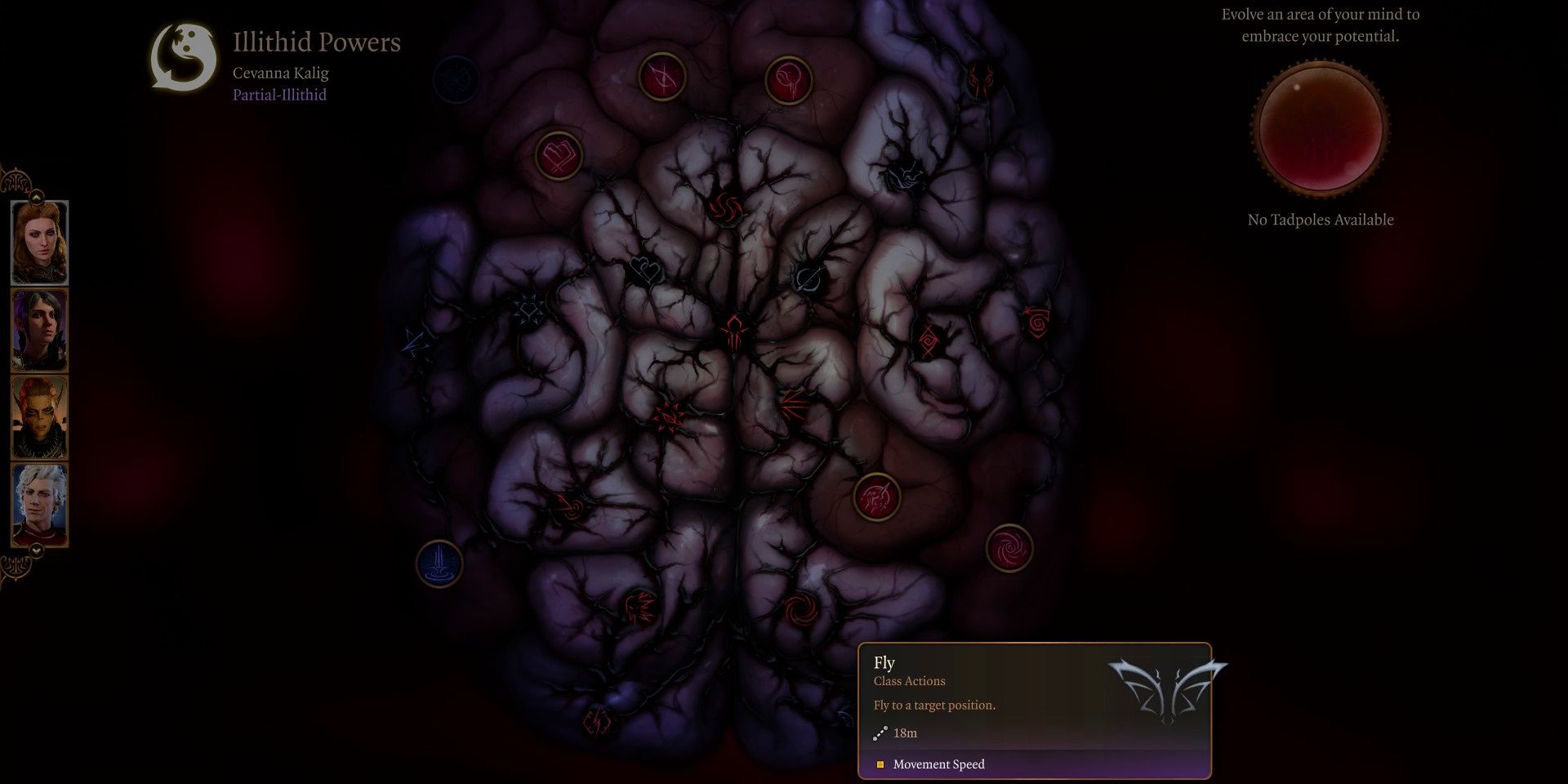
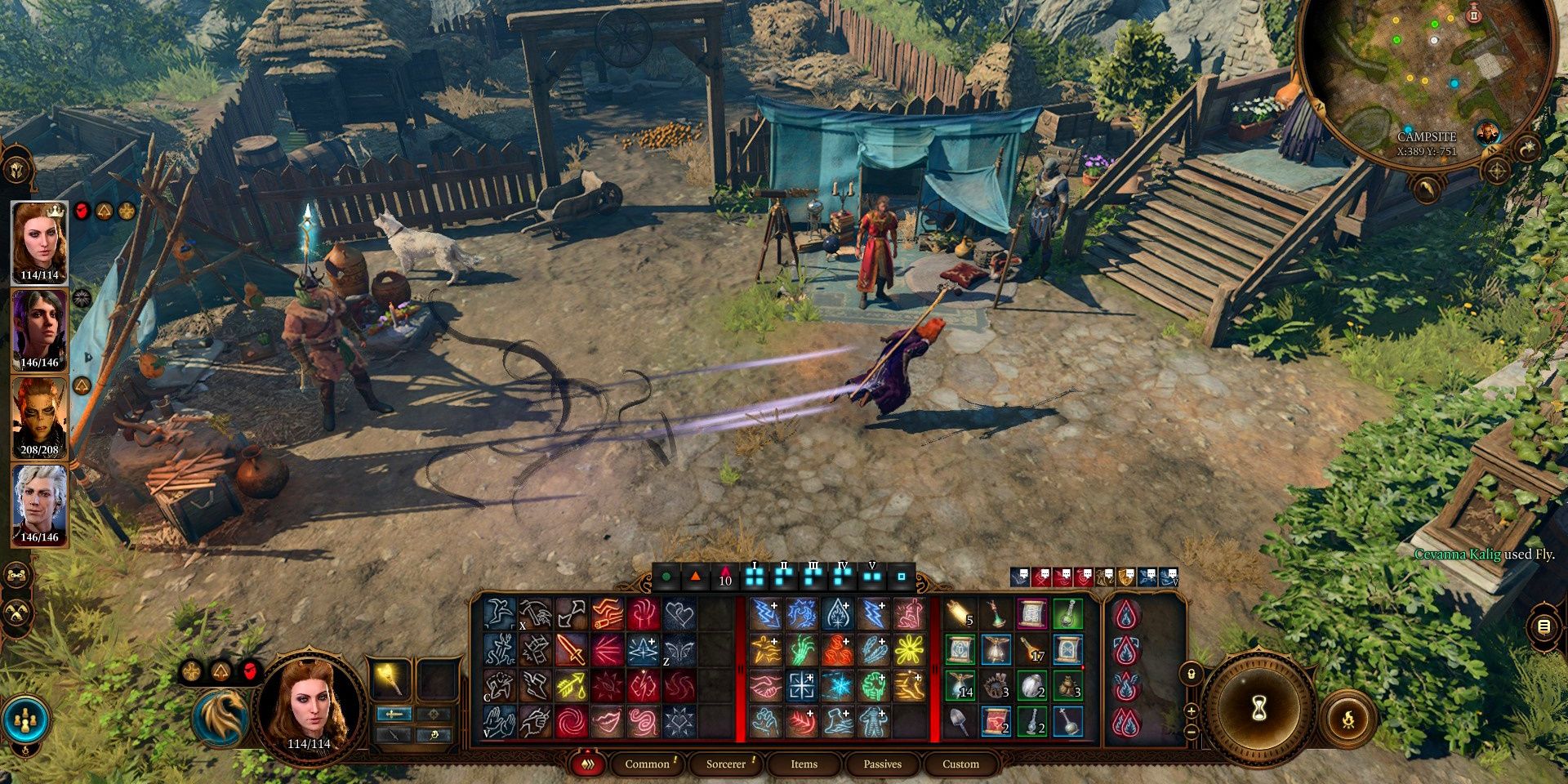
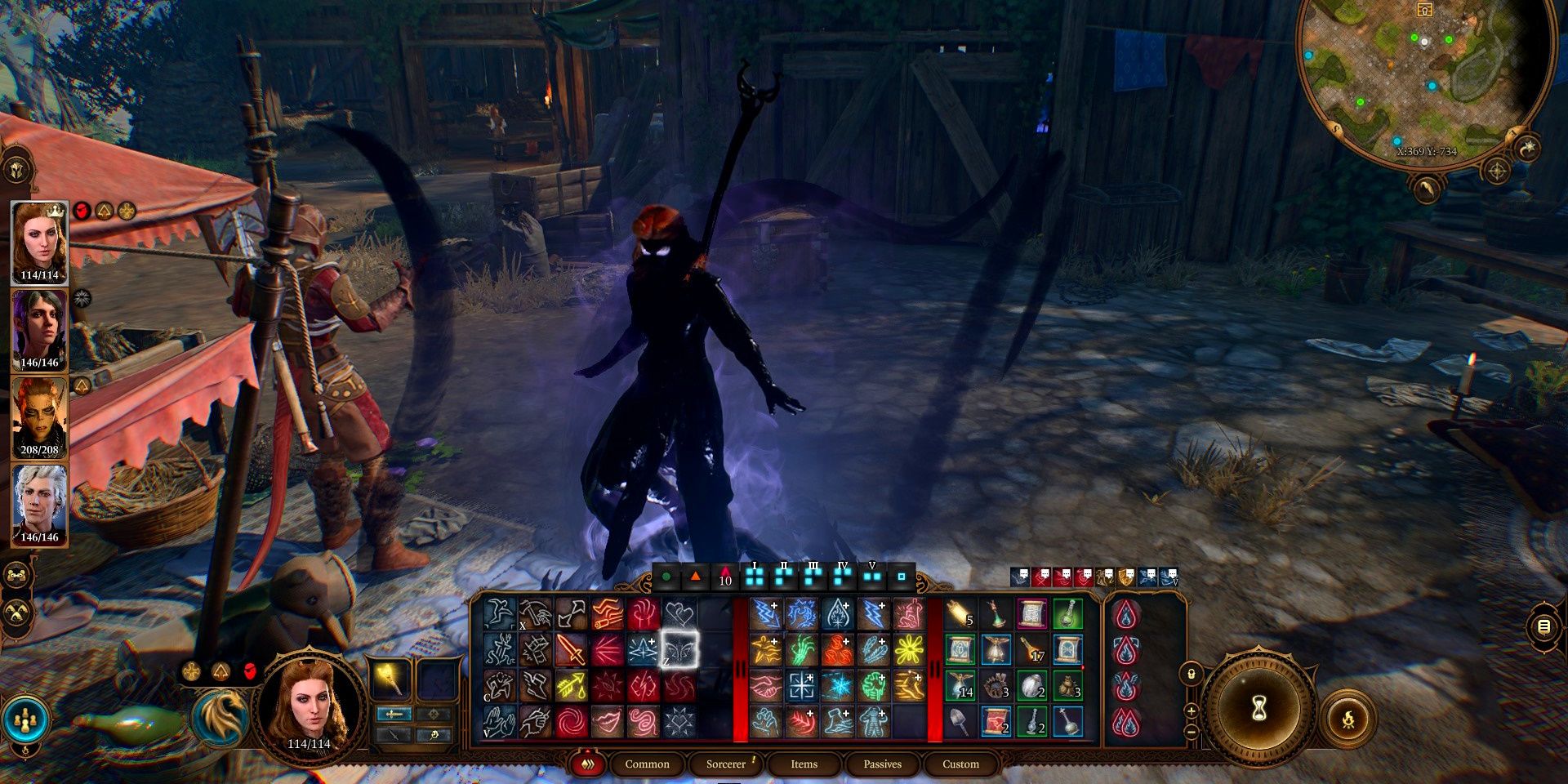
However, these consequences shouldn’t preclude anyone from using Illithid Powers. Simply put, they’re too useful to ignore entirely from a practical standpoint. One of them in particular, Favorable Beginnings, is especially versatile. It allows a character to add their proficiency bonus to the first roll they make, whether that’s an attack or a skill check against a target. Since proficiency scales up with a character’s level, this is an especially effective Illithid Power that can give the party an early advantage in a variety of encounters throughout the entire game.
However, for the most part, Illithid Powers are geared toward giving the party an advantage in battle. Moves like Force Tunnel can aggressively push a character forward, blasting back anyone who might stand in their way. Others, like Concentrated Blast, allow characters to deal damage while focusing on a concentration spell. Still others come with more direct costs, like Psionic Overload, which adds 1d4 psychic damage to all attacks but also deals damage to the caster every turn. And yet others might put opponents in a tricky position – for example, by inflicting a disadvantage on attack rolls with Stage Fright.
Building up a strong library of Illithid powers can make it possible to get incredible mileage out of Cull the Weak, an option that instantly kills opponents beneath certain HP thresholds. The ability scales with the total amount of Illithid Powers unlocked, so it can be especially powerful for anyone who wants to lean into mind flayer abilities. Of course, that will require a wholehearted embrace of the contentious mechanic, so it isn’t necessarily a strategy for the faint of heart.
How To Get Illithid Powers In Baldur’s Gate 3
Unlock Powerful Skills By Consuming Parasites



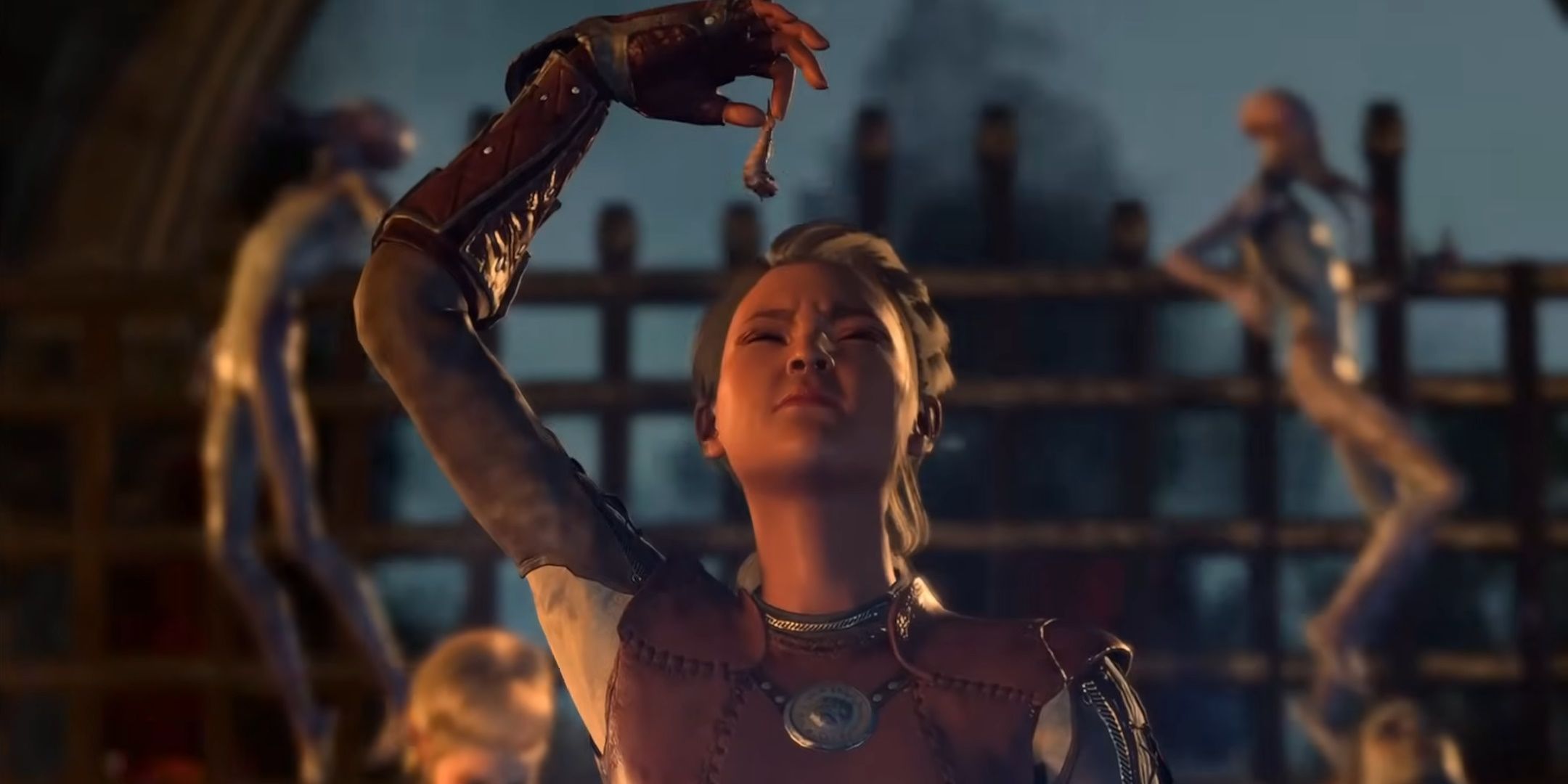

Getting the very first Illithid Powers is as easy as booting up the game and making a character; they’ll automatically receive the most basic ones during the introductory sequence. From then on, Illithid Powers appear in a brain-based skill tree. However, unlike typical RPG skill tree progression, acquiring new Illithid Powers requires the player character to consume various mind flayer parasites, which may be found throughout the world. They’re usually provided as item drops when certain characters die, but can also occasionally be stolen from unsuspecting marks.
How To Become A Mind Flayer In Baldur’s Gate 3
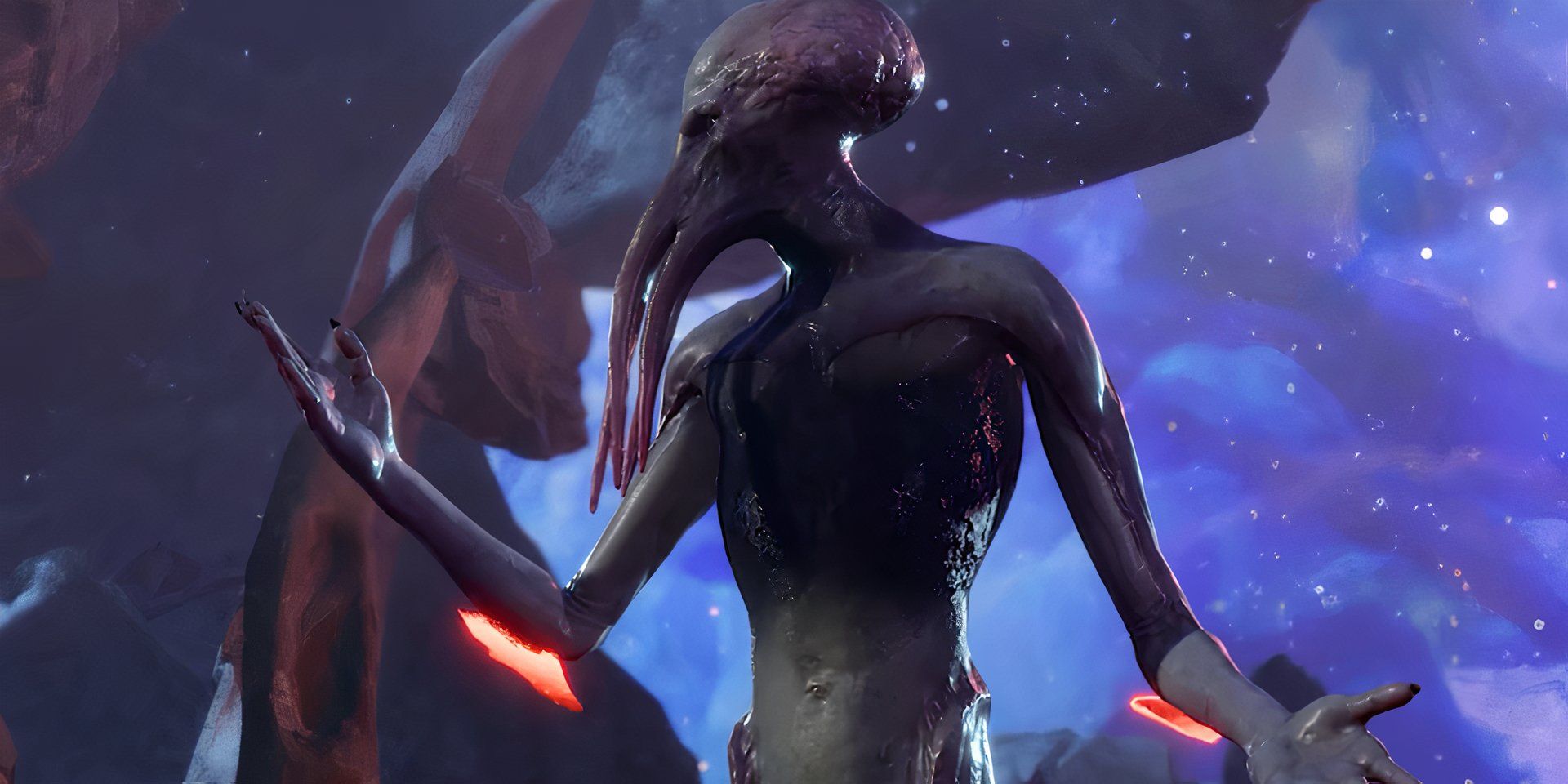

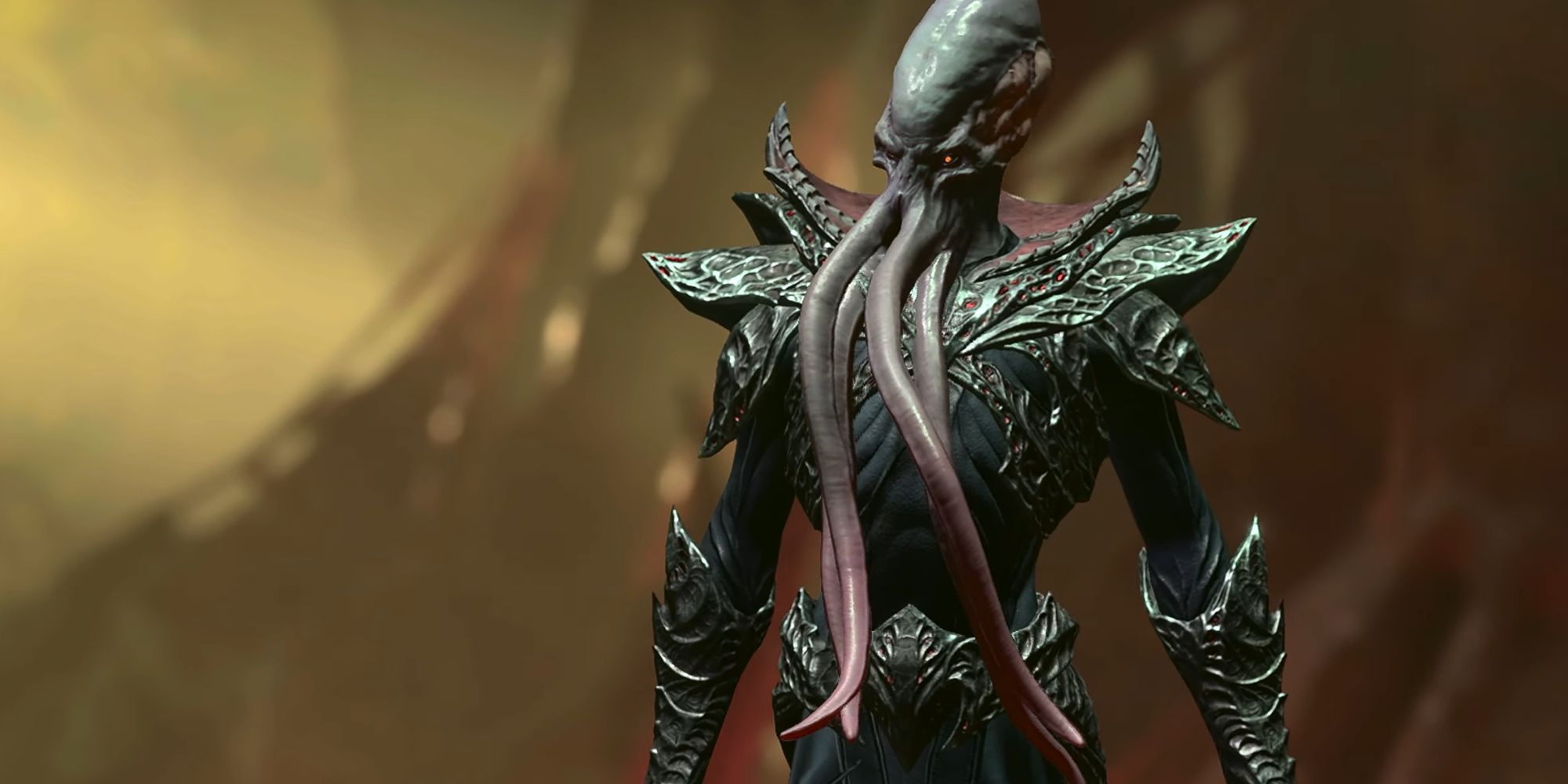



Later in the game, there’s an additional way to gain access to better Illithid Powers, but doing so will lock in one of the game’s endings. Throughout Baldur’s Gate 3, a mysterious figure called the Guardian will contact you in your dreams. The Guardian repeatedly promises greater power, and, at a certain point, offers you an Astral-Touched Tadpole. Consuming this will turn you into a half-mind flayer, which opens up more of the Illithid Power skill tree. While this brings a permanent appearance change, and can’t be backed out of, it doesn’t yet lock you into a specific ending.
You can convince one of your companions to make the half-mind-flayer change instead, but doing so is not easy.
Ultimately, the benefits of using Illithid Powers in Baldur’s Gate 3 greatly outweigh the risks. Those who want to pursue certain romance options with characters who disapprove of Illithid Powers would do well to avoid them, or at least use them sparingly. Illithid Powers are an interesting mechanic because of how they make the player mirror the character: by tempting them with incredible strength while threatening them with dire consequences. Simply put, they’re too useful – and fascinating – to be avoided entirely in Baldur’s Gate 3.





